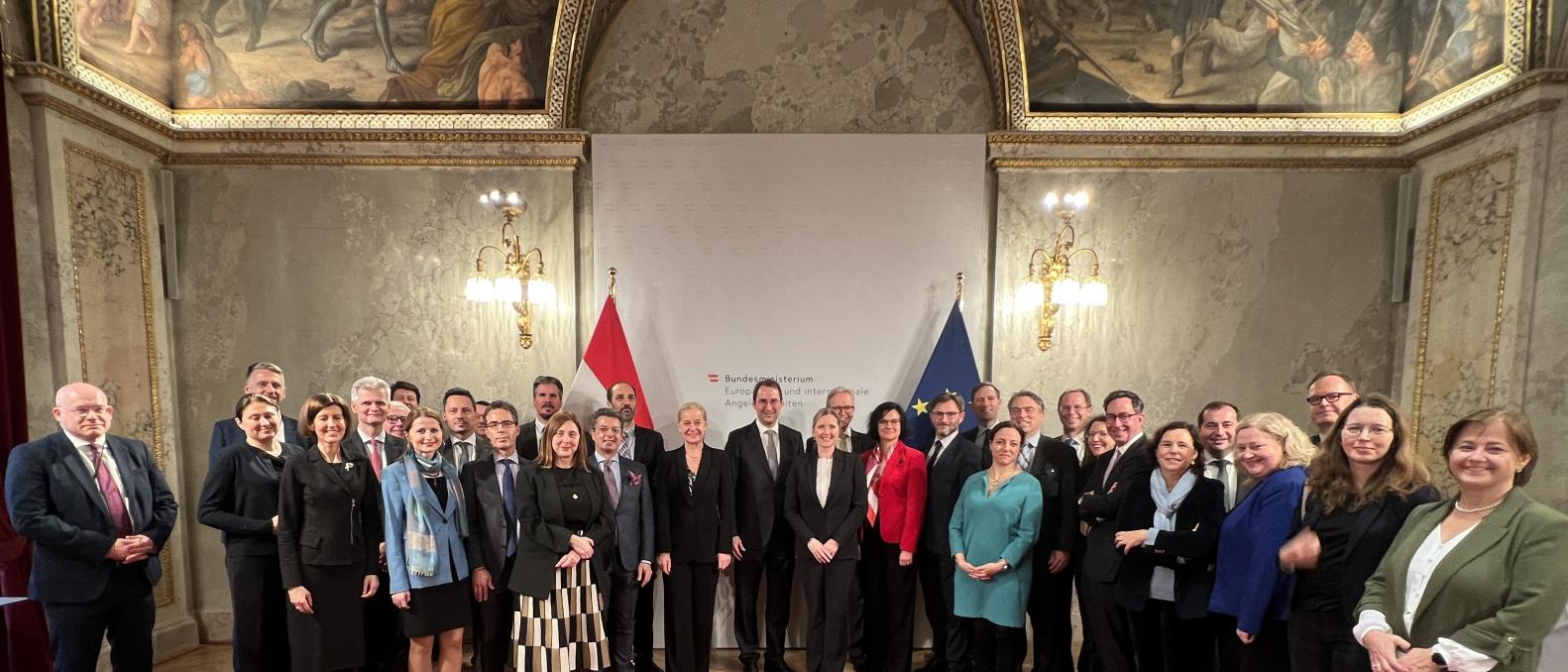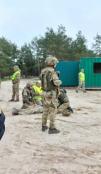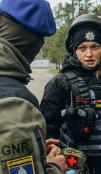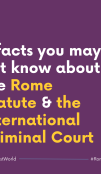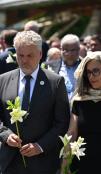Ambassadors to the Political and Security Committee of the Council of the European Union (PSC) visited Vienna
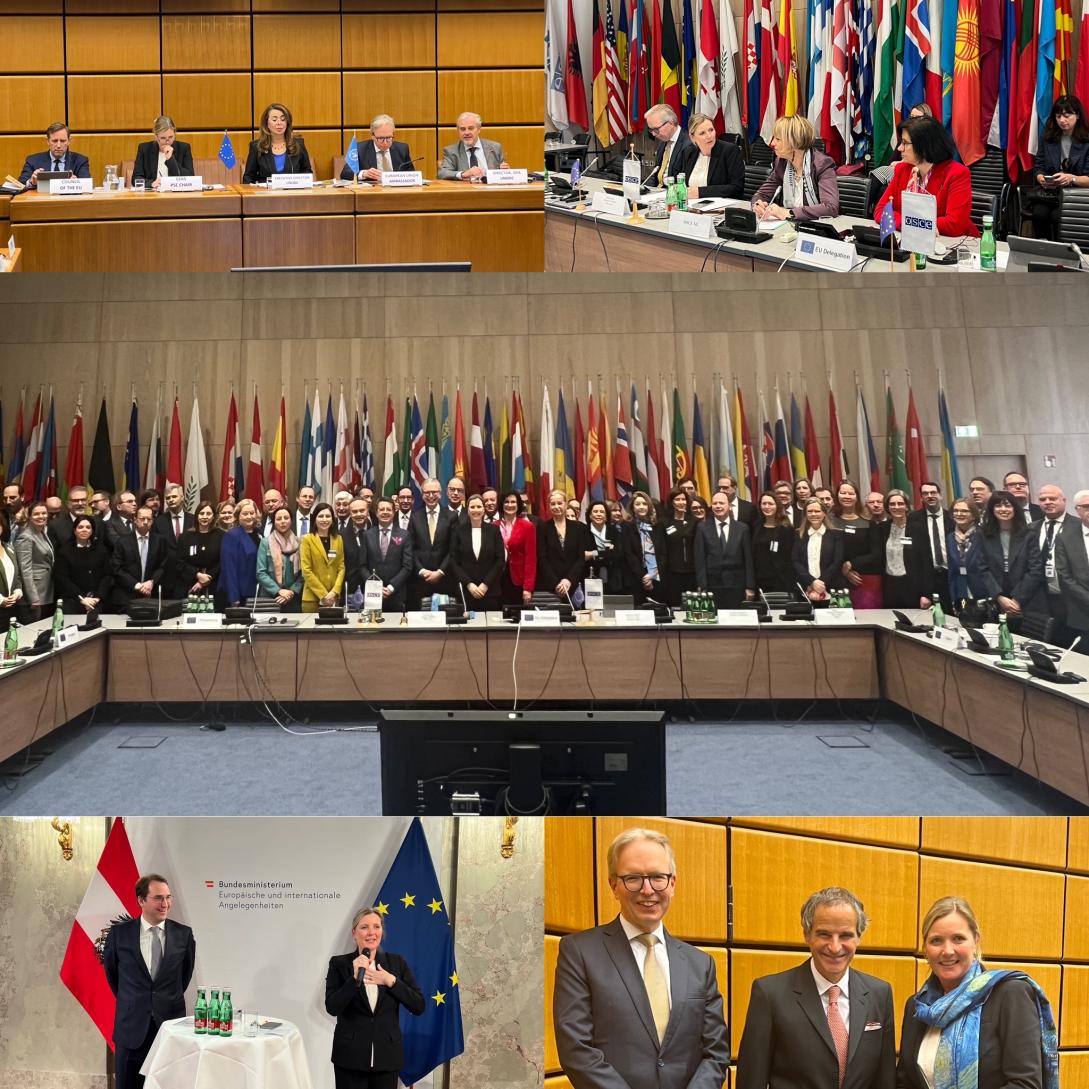
The Political and Security Committee usually convenes in Brussels, and consists of Ambassadors from the 27 EU Members States. The committee provides strategic recommendations, and monitors international developments relevant to the EU Common Foreign and Security Policy. Multilateralism and diplomacy are at the centre of EU foreign policy. Therefore, engagement with international organisations, such as the UN and the OSCE, is essential in shaping the EU’s role in the world.
The first part of the PSC’s visit to Vienna took place at the Organisation for Security and Cooperation in Europe (OSCE), based at the historic Hofburg. The PSC Ambassadors, accompanied by their Vienna counterparts, representatives to both the UN and the OSCE, held a morning discussion on the state of play of Vienna multilateralism. Ambassador Carl Hallergård, Head of the EU Delegation in Vienna, opened the discussion by reflecting on the Vienna Spirit of consensus. Ambassador Delphine Pronk, Chair of the PSC, called for strong cooperation among the EU27 to face the various threats and instability confronting the EU today. The best answer was effective multilateralism, underscored Ambassador Pronk. The EU, with consensus as part of its DNA, was therefore ideally placed to make an impact.
In the following discussion, EU Ambassadors in Vienna gave an account of their current initiatives in both the OSCE and the UN. They underscored that despite political difficulties, the OSCE continued to be a functional and valuable organisation for European security, such as through its three autonomous institutions, twelve field operations, as well as the programmatic activities of the Secretariat. Additionally, its comprehensive concept of security and diverse membership contribute to its significance. Ambassadors consistently emphasised that the United Nations Office on Drugs and Crime (UNODC), the United Nations Industrial Development Organisation (UNIDO) and the International Atomic Energy Agency (IAEA) were valuable and strong partners for the EU. In the next session, Helga Maria Schmid, OSCE Secretary General, held an in-depth discussion on the current and future state of the OSCE and EU-OSCE relations. She extensively briefed about the OSCE’s multifaceted activities across all three dimensions of security, also in response to Russia’s full-scale invasion of Ukraine since 2022. Additionally, she underscored the value of the OSCE in providing a diplomatic platform for non-likeminded States and called for enhanced synergies between the OSCE, the EU, as well as its Member States.
The PSC Ambassadors then paid a visit to the Federal Ministry for European and International Affairs of Austria, meeting its Secretary General, Nikolaus Marschik. They discussed implications of Russia’s aggression against Ukraine, as well as Austria’s commitment to humanitarian assistance to Gaza and the two-state solution to the Israeli-Palestinian conflict.
A busy yet fruitful day was finalised with two meetings at the UN. First, a meeting with Rafael Grossi, Director General of the IAEA, was held at the IAEA headquarters. He highlighted the Agency’s critical role in ensuring nuclear safety and security in Ukraine. Furthermore, the meeting covered current developments related to the nuclear programmes of Iran and North Korea. Finally, PSC Ambassadors met Ghada Waly, the Director General of the United Nations Office at Vienna (UNOV) and Executive Director of UNODC. She gave an overview of UNODC’s efforts to prevent and combat crimes that affect the environment, smuggling of migrants, and trafficking in persons, firearms and drugs in different regions. Together with the Ambassadors, she discussed how to strengthen EU-UN cooperation in combatting corruption and human rights violations.
The visit to Vienna highlighted that, despite current challenges to effective multilateralism in Vienna, the EU and its Member States have a convening power on key issues, extending even beyond like-minded States. Virtually all interlocutors praised the EU for its strong engagement, at times pleading for even greater commitment, both politically and financially.


